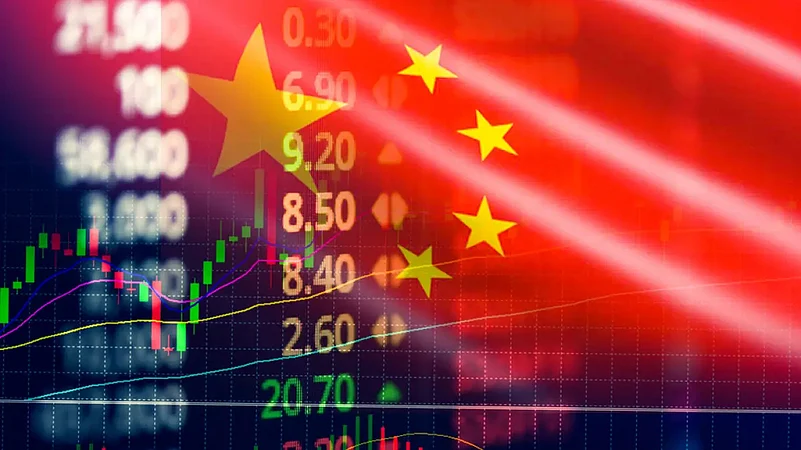Asian stock markets were mixed Wednesday ahead of the Federal Reserve's announcement of how sharply it will raise interest rates to cool U.S. inflation.
Shanghai and Hong Kong advanced. Tokyo and Sydney declined. Oil prices edged higher.
Wall Street's benchmark S&P 500 index lost 0.4% on Tuesday as traders waited for a Fed rate hike they expect to be three-quarters of a percentage point, or triple the usual margin. They worry that aggressive Fed action to cool inflation that is running at a four-decade high might tip the biggest global economy into recession.
A “hawkish surprise” from the Fed could be a “further shock to risk assets," said Anderson Alves of ActivTrades in a report. “Money markets are already pricing around 90% possibility of such action.”
The Shanghai Composite Index gained 1.1% to 3,323.64 after the Chinese government reported factory output rebounded into positive territory in May as anti-virus controls that shut down businesses in Shanghai and other industrial centers eased.
Hong Kong's Hang Seng gained 1.2% to 21,312.67 while the Nikkei 225 in Tokyo shed 0.7% to 26,435.01.
The Kospi in Seoul shed 1.2% to 2,463.45 after the government reported South Korea's unemployment rate ticked up 0.1% to 2.8% in May.
Sydney's S&P-ASX 200 shed 0.4% to 6,658.40. New Zealand and Singapore advanced while Jakarta declined.
On Wall Street, the S&P 500 declined to 3,735.48, putting it 21.8% below its Jan. 3 peak. That puts it in a bear market, or a drop of 20% from the last market top.
The Dow Jones Industrial Average fell 0.5% to 30,364.83 and the Nasdaq composite rose 0.2% to 10,828.35.
Expectations of an unusually big Fed rate hike increased after government data Friday showed consumer inflation accelerated in May instead of easing as hoped.
The Fed is scrambling to get prices under control after being criticized earlier for reacting to slowly to inflation pressures.
Britain's central bank also has raised rates, and the European Central Bank says it will do so next month.
Japan's central bank has kept rates near record lows. That has caused the yen to fall to two-decade lows around 135 to the dollar as traders shift capital in search of higher returns.
Markets also have been jolted by Russia's attack on Ukraine, which has pushed oil prices to history-making highs above $120 per barrel, and by virus outbreaks in China that led to the closure of factories and disrupted supply chains.
In energy markets, benchmark U.S. crude rose 13 cents to $119.06 per barrel in electronic trading on the New York Mercantile Exchange. The contract lost $2 on Tuesday to $118.93. Brent crude, the price basis for international oil trading, added 14 cents to $121.31 per barrel in London. It fell $1.10 the previous session to $121.17.
The dollar declined to 135.13 yen from Tuesday's 135.30 yen. The euro gained to $1.0446 from $1.0411.































